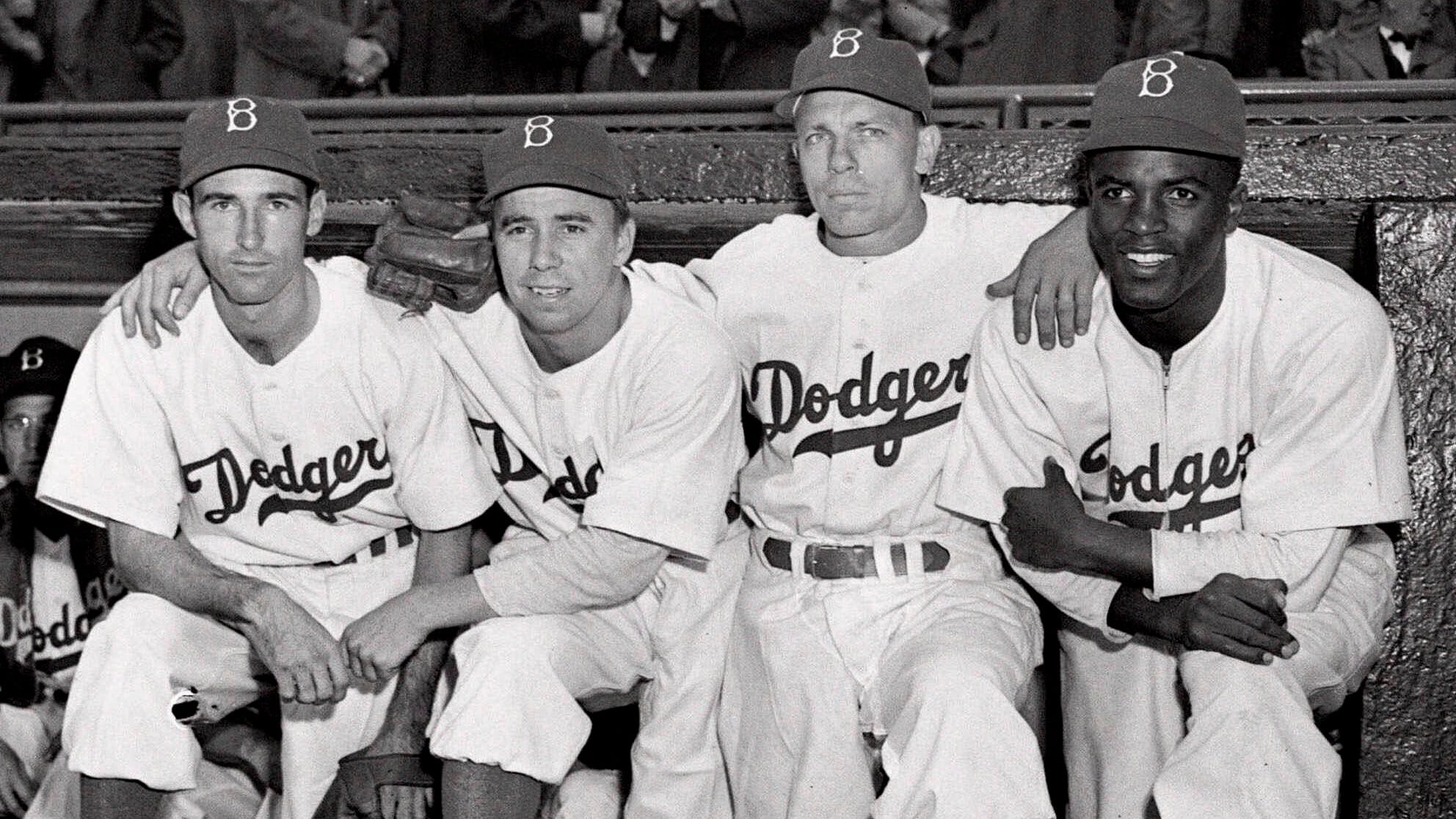Every April 15th, Major League Baseball celebrates “Jackie Robinson Day”, to honor the Dodgers player who in 1947 broke the segregation barrier and became the first African American in the league.
PUBLICIDAD
Since then, Robinson has become a symbol of equity and the fight against discrimination, but the government of Donald Trump tried to delete his history as a member of the United States military.
PUBLICIDAD
Who was Jackie Robinson?
In 1947, under the leadership of general manager Branch Rickey, the Dodgers, who were then in Brooklyn, made the decision to break the barrier of segregation in Major League Baseball and look for an African American for the team.
They chose Robinson, a player from the Kansas City Monarchs in the Negro Leagues, for his great athletic ability, as well as his strong character and self-control.
Robinson first spent a season with the Montreal Royals, a Minor League team affiliated with the Dodgers, and then made the jump to the Majors: Jackie debuted on April 15, 1947, at the now demolished Ebbets Field in Brooklyn, in a game against the Boston Braves.
Today at number 55 Sullivan Place, in the heart of Brooklyn, New York, a plaque reads: “Site of the home plate of Ebbets Field. Home of the Brooklyn Dodgers 1913-1957. On this spot, on April 15, 1947, Jack Roosevelt Robinson integrated Major League Baseball”.
"Integrated" is a euphemism for saying that Jackie Robinson broke a barrier of racist exclusion.
Years later, in 1955, the Dodgers won the World Series for the first time in their history, and on that team, in addition to Robinson, other African American players stood out such as Roy Campanella, Jim Gilliam, and pitcher Don Newcombe.
Robinson was in the Army during World War II
After excelling in sports at UCLA, Robinson enlisted in the United States Army during World War II, where he also faced racial discrimination.
In 1942, Robinson was assigned to Camp Hood in Texas, and later joined the 761st Tank Battalion, a segregated military unit known as the Black Panthers. In 1944, Jackie refused to obey the order of a driver to move to the back of an army bus he had boarded, as was the racist tradition in many states at that time. After arguing with an officer over the incident, he had to face a court-martial.
Months later, Robinson was acquitted, but he was unable to travel to Europe with his combat unit. Before requesting his honorable discharge, he spent his last months training the army’s sports teams.
All that history was included in the series “Sports Heroes Who Served” by the United States Department of Defense, but in March it was deleted as part of the purge by the Donald Trump administration against diversity, equity, and inclusion (DEI) campaigns.
In addition to Robinson, the story of Ira Hayes (one of the soldiers who raised the US flag on Iwo Jima and was of Pima descent) and the Navajo code talkers (who transmitted secret messages in their native language) were also removed.
In a statement, the head of the Pentagon, Pete Hegseth, said that “DEI is dead in the Department of Defense” and added that he was “pleased with the quick compliance” with the guidelines.
However, hours after the statement, the removal of the content, and the scandal that ensued, the Department of Defense had to re-enable the content about Robinson, Hayes, and the Navajos.
In a new statement, the Pentagon spokesperson said that “everyone at the Department of Defense appreciates Jackie Robinson, as well as the Navajo Code Talkers, the Tuskegee Airmen, the marines at Iwo Jima, and many others. We salute them for their steadfast and, in many cases, heroic service to our country, period.”
